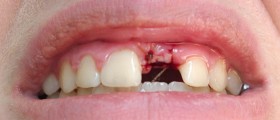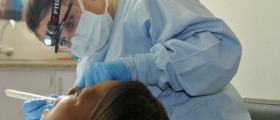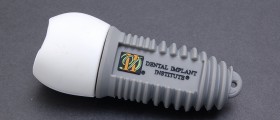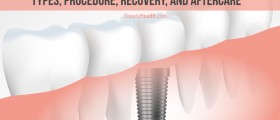Drug rehabilitation clinics should no longer administer a controversial opioid detoxification method, government health officials have said. An investigation by the New York City Department of Health and Mental Hygiene found that anesthesia-assisted rapid opioid detoxification (AAROD) put patients at risk for serious adverse events, including cardiac arrest, vomiting, pulmonary edema and death. Between January and September 2012, 75 patients underwent AAROD procedures at a New York City outpatient clinic, according to a recent report from the Centers for Disease Control and Prevention (CDC; MMWR 2013;62:777-780). Seven patients (9.3%) experienced adverse events that required hospitalization. Of these adverse events, two were fatal. In one case, the autopsy indicated cardiomegaly and pulmonary edema; in the other, the autopsy revealed anoxic encephalopathy and coronary atherosclerosis, and “hypokalemia and cardiac arrhythmia following anesthesia-assisted rapid opiate detoxification” was the cause of death.
Deaths Highlight Concerns Over “Ultra-Rapid Detox”by John Dillon
A controversial drug detoxification method that uses anesthesia to take the edge off withdrawal symptoms once again has come under fire after Michigan authorities suspended the licenses of two doctors in whose care two patients died.
Proponents of “ultra-rapid detox” say that the acts of a few charlatans have given the technique a bad name. Opponents, however, say that the deaths are evidence that the approach should be abandoned.
Ultra-rapid, anesthesia-assisted detoxification was developed in the early 1990s as a way to treat people addicted to heroin and other opioids. Patients are put under while doctors administer an opioid blocker that starts the withdrawal process. Its lure is the anesthesia, which renders the patient unconscious for the first few painful hours of withdrawal; it has often been called “detox in a day.”
Because many hospitals won’t give admitting privileges to doctors who perform the procedure, it is often done at clinics, including Project Straight in Troy, Mich. According to a statement by Mike Cox, Michigan’s attorney general, two patients being treated by Robert A. Wolf, MD, and Aeneas Guiney, MD, Project Straight’s former partners, died and three others required hospitalization. The doctors’ licenses were suspended for several violations, including failing to employ proper methods in screening potential patients and failing to provide professional follow-up. According to Mr. Cox, both doctors released the patients with no one to assist them, even though they had received “a host of potentially lethal medications with ambiguous dosage instructions.” It is not the first case of deaths among patients undergoing rapid detox: In New Jersey, two doctors had their licenses suspended after seven detox patients died under their care.
“It’s a good procedure that has oftentimes been in bad hands,” said Ronald H. Wender, MD, co-chair of the Department of Anesthesiology at the Cedars-Sinai Medical Center in Los Angeles. “This is a medical procedure like any other medical procedure: It needs to be done in the appropriate setting with the appropriate equipment with the appropriate people.” Dr. Wender, who has been doing anesthesia-assisted detox for 15 years, said it is not a cure, but it can help addicts get clean with less pain. The cost ranges from $3,000 to $17,000, with the more expensive treatments providing professional aftercare. “If you don’t get them [addicts] detoxed, you don’t get them in aftercare,” Dr. Wender said. “The real key to success is the aftercare program.”
This is a WONDERFUL procedure when performed in a REAL hospital, NOT in a hospital setting!
Loading...
My sons friend went there and end up in the emergency room in less than a day. He could not stop vomiting and diarreah after they sent him to a hotel with his mom. He could not even lift his head.
Its crazy!!!!
Loading...
Loading...
Loading...
I feel compelled to tell my story at the Rapid Detox Center in Michigan, the same that Girl Afraid went to. The intake was basically the same as hers, but the 7800.00 plus airfare was much cheaper than the Hospital in Chicago or the Clinic in California, plus the anonimity. I had six cervical operations in 6 years, and was on pain management for 6.5 years. I was on 3 100mg MS Contin & 6 30mg oxycodone. At times, I had to use a 25mg Fentanyl patch the pain was so bad. I was not addicted, but definitely dependent. My pain management doctor thought I suffered from Hyperalgesia, where the opiods actually make the pain worse. I decided on my own to get off the medicine merry-go-round, since I was going to have to go on something stronger. I went up to Michigan on 8/27/13, and I was lucky Labor Day weekend followed. In contrast to Girl Afraid, after the procedure, I had the best one-on-one care. At first in recovery, I was hallucinating, asking for everything from my Ipad to my broken glasses, which my wife had at the hotel, and were fine and never broken to begin with. Then the fireworks started. They gave me 2 awards; one for being so kind and respectful, and the other for vomiting more than anyone else they had encountered. My nurse took a pen and piece of paper and counted the times I regurgitated by making the 4 straight lines, and going diagonally for the 5th. She stopped counting at 15 times, and the first time I threw up, they actually called in a MD to see if I had somehow dislodged the small lobe of my liver from wretching so violently. And that was just one end, Yes, I too wore diapers, and the diahhrea lasted well past my 4 day stay. I was in a diaper on the way home on the plane, which I really wanted to bale on, but I felt bad for my wife, so I somehow made it without using an airline sickness bag. Since the center does not use a hospital, the have part of a 4th floor of a Comfort Suites set up as a mini-hospital. The rooms are the same as the other hotel rooms, it is just that the caring nurses, doctors, and EMT's are always checking on you, and yes, they do give you prescription drugs after the procedure to help you with the lingering withdrawl symptoms. I could have never done this on my own, and the worst part of it I was knocked out for. The 2 most painful situations I have seen in my life were in college in the early 70's; one person was going through heroin withdrawl, somehow fell down a fire escape, and had permanent brain damage. The other was passing a kidney stone. I knew I would not feel very well after the initial procedure, but I did not know it would be this bad for so long. I opted for the oral administration of the Naltrexone, since I was worried if the pain persisted a month after the procedure, I might have to go back on pain meds. It is now 11/13/13, and although I have gained back some of the 22 lbs I lost, and I actually feel most of the procedure has worn off, I still suffer from constant insomnia, getting at the most 2 hours sleep a night in 30 to 45 minute segments, with hours in between.I stopped taking the 50mg Naltrexone 2 weeks after the procedure, and it helped calm some of my symptoms. Thank goodness I did not get the 30 day IV injection, or the implant. I am 58 years old, and they will not perform the procedure if you are over 60. I had to have a stress test before they would consider me, and I was/am an elite amateur triathlete and coach. I would give the center an A all-around, because they sent me home with a 30 day supply of prescription meds, a tapering schedule, and I called the center at least ten times with issues I was having, and was always treated with dignity and respect. What suprised me is that they did not seem to know that Naltrexone causes insomnia. Not all of those that want to yank out the implant want to use again; the just want a good nights sleep. I did not think that after 6 years of taking high doses of pain medication that this was going to be easy, but I did not think it would take this long to recover. as for the Hyperalgesia, that theory went out the window, since I am just in as much pain as I was before, but after what I have been through, I will only take an opiod if I have a terminal illness. For now, I alternate between Advil, Tylenol & Aspirin, and I am still on Valium until I can sleep through the night. Would I recommend this center? Yes. My pain mgmt. MD looked at me as the sacrificial lamb, since the 2005 JAMA conclusion said it was not safe. After he saw that I was weak, skinny and not sleeping, the big test came in the urine sample. Yes, I have plenty of pain meds tucked away, but I have been clear of opiates for 2 months. He then told my story to a father that was having an addiction problem with his son. Apparently, the son had been ingesting at least 300 mg of oxycodone a day, and the source in Florida was drying up due to the DEA, so he was buying it on the street. Patient/Doctor priveleges were invoked, but my guess was the son was in his early 20's. I believe age is tremendously important in the recovery, because I was very fit. The kid in his 20's sailed through the procedure, has had few side effects, and is still clean, since they test him every 2 weeks. The only reason I found this site after many searches was to see if anyone else had the lingering insomnia that I do. After I saw that many people are confused about the procedure, I felt it was my duty to share my experience. It is no day in the park for weeks from my conclusion, but it is better than going cold turkey, and in my case, I was on such high doses that I could not wean myself off, even though I tried everything under the sun, from cleansing to ultra-violet saunas. Although there are risks, thank goodness my stay and outcome is positive, if I could just sleep!
Loading...
I sent my 21 year old son to a rapid detox center (Waismann) in Souther California. I did a lot of research before making a move. What I learned was that all rapid detoxes are not the same, hence the price difference. Rapid detox is now done with sedation, not anesthesia as was previously the case, resulting in considerably less risk. Some procedures are done in a doctor's office, or surgery center, rather than an accredited hospital and/or critical care unit. A hospital will not release a patient that is ill, by law, a surgery center cannot keep a patient over 24 hours! Lastly is the aftercare provided. Many centers send the patient home or to a hotel room after the procedure. My son went to Waismann's aftercare facility "Domus" consisting of an estate property with all the amenities, but more importantly, psychological and medical monitoring. Many times I am upset with my state of California for too many burdensome laws, however when it comes to medicine, a procedure like rapid detox that starts in a surgery center, and next day ends in a hotel, would not fly. SAFETY FIRST!
Loading...
I just experienced this procedure with my son. No way you could make that flight. He was unconscious for two days after the procedure. He is in and out and full of pain five days later. The drugs they use are heavy duty. It is a rapid detox not an easy detox. Brutal to watch. Immediately after, lots of sneezing, puking and diarrhea, even after five days. We flew to California from Detroit three days later and it was BRUTAL.
Loading...

















